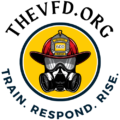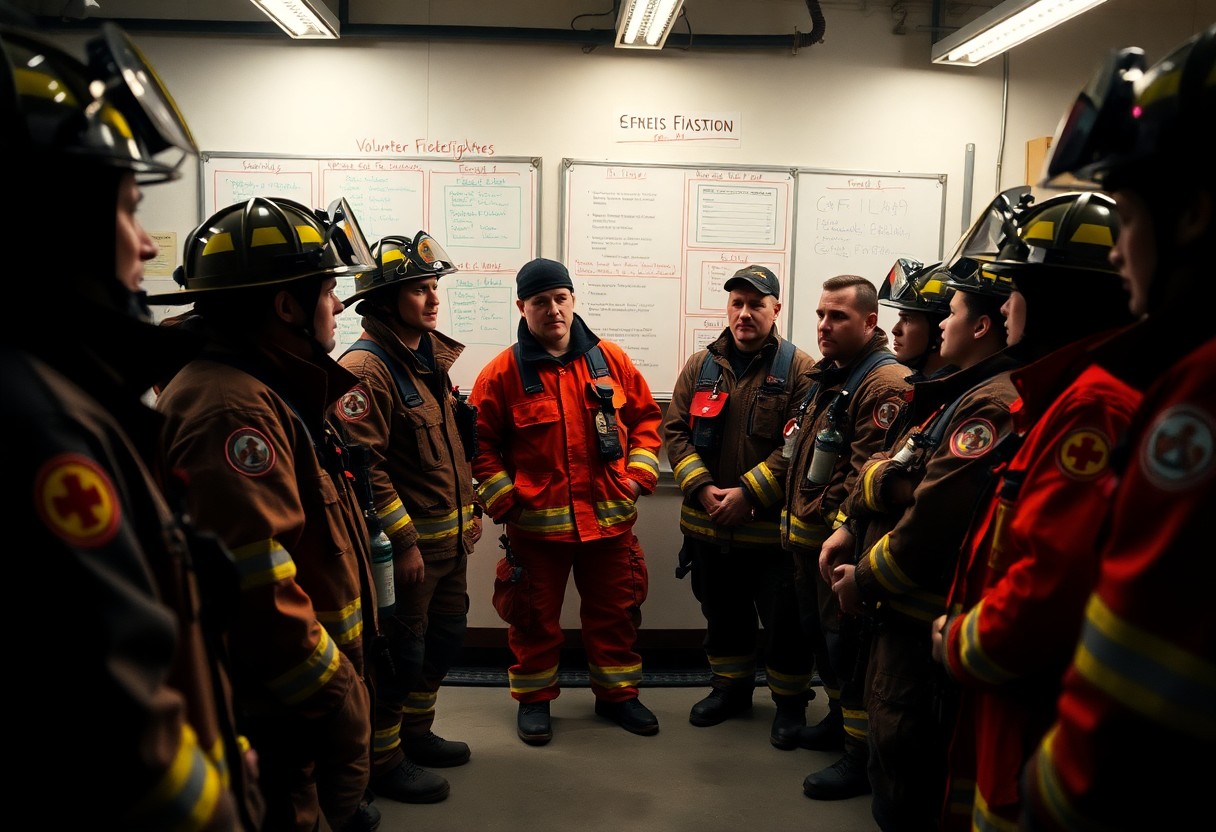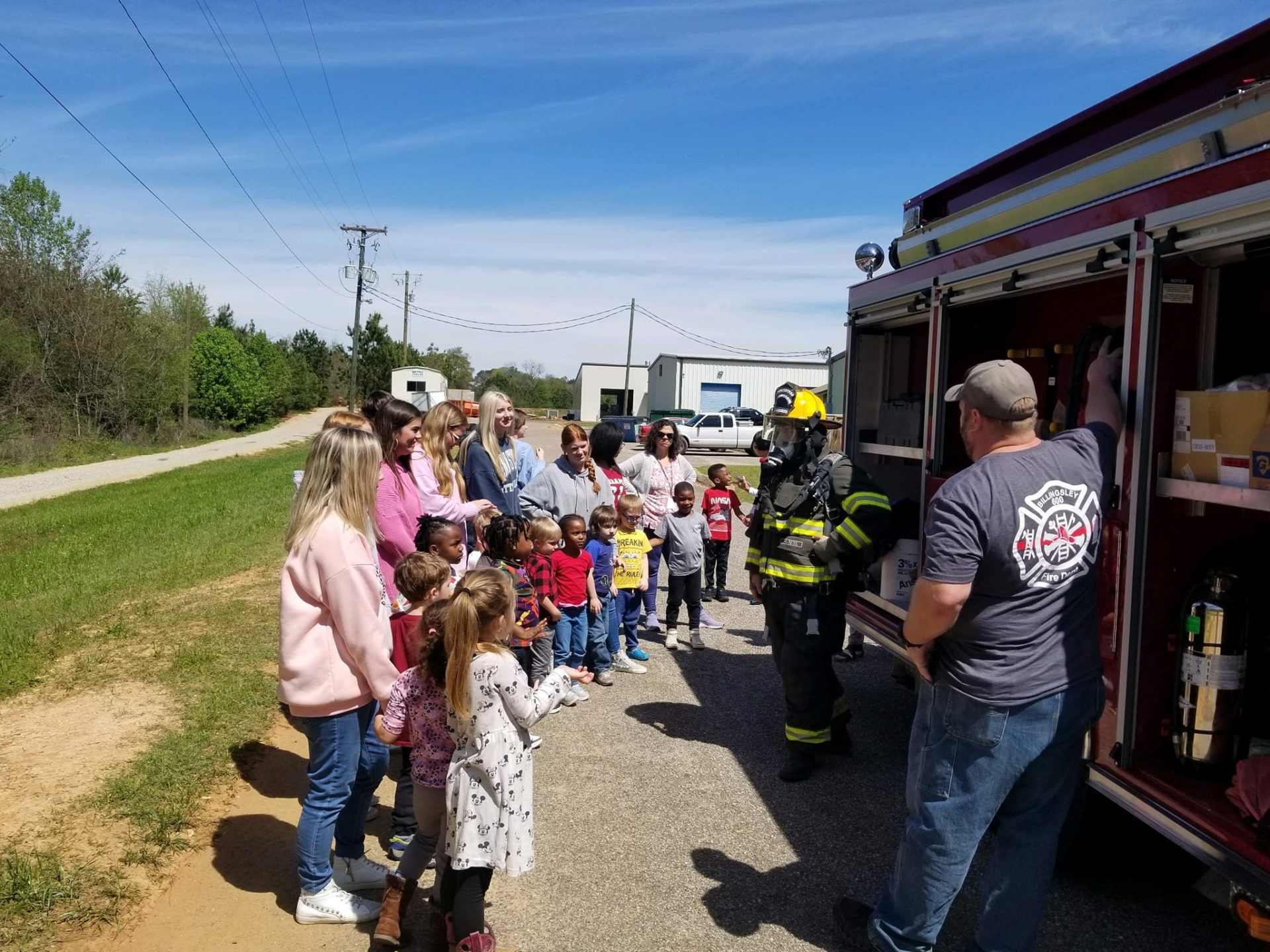This guide will help you manage overly ambitious volunteers in your volunteer fire department effectively. While their enthusiasm can be positive for team morale, unchecked ambition can lead to unsafe situations and strain on your resources. You need to establish boundaries and communicate your expectations clearly. By implementing structured training and fostering a culture of teamwork, you can harness their energy while ensuring the safety of all members. In this post, you’ll find important tips and strategies to strike the right balance.
Understanding Over Ambition
A volunteer fire department thrives on the dedication and passion of its members. However, when ambition turns into an unhealthy drive, it can lead to conflicts or unsafe situations. Understanding over ambition is important for ensuring that your team operates cohesively and safely. By recognizing the signs and causes, you can implement strategies to manage these behaviors effectively while fostering a positive environment.
Identifying Overly Ambitious Behaviors
Identifying overly ambitious behaviors involves observing certain patterns that may disrupt team dynamics. These may include an eagerness to take on too many responsibilities, demonstrating a lack of regard for established protocols, or putting personal goals above team objectives. Such behaviors can lead to frustration and burnout among your team members, negatively impacting overall performance.
Factors That Contribute to Over Ambition
On several occasions, you may notice specific factors that contribute to over ambition in your volunteer fire department. These can include a strong desire for recognition and promotion, competition among team members, or past experiences of being undervalued. Recognizing these factors is vital, as they shape how individuals approach their roles and interact with colleagues.
- Desire for recognition
- Competition
- Past experiences
Perceiving these influences can help you guide your volunteers towards a healthier sense of ambition.
The root causes of over ambition can significantly impact the functioning of your fire department. A strong desire for recognition often drives individuals to push boundaries, while competition can create an environment where members feel they need to outperform one another. Additionally, past experiences may lead some volunteers to strive for validation, possibly at the expense of team cohesion. Understanding these elements will allow you to address the behaviors effectively and promote a balanced approach to ambition among your team.
- Impact on team dynamics
- Need for validation
- Potential for burnout
Perceiving these challenges can pave the way for better communication and collaboration within your department.
Establishing Clear Expectations
Any successful volunteer fire department must begin with clear expectations. This means outlining the goals, duties, and conduct you expect from all volunteers. By setting these standards early on, you foster a sense of unity and purpose, allowing everyone to contribute effectively while minimizing misunderstandings.
Communicating Roles and Responsibilities
Roles within the department must be clearly defined to avoid confusion. Each volunteer should understand their specific duties during training, emergencies, and community events. This allows for efficient teamwork and ensures that all members know who to rely on in various situations.
Setting Boundaries for Volunteers
Little is more important than establishing limits for your volunteers’ involvement. This prevents them from taking on too much, which can lead to burnout and operational issues. Ensure that your volunteers understand the acceptable scope of their duties.
This means delineating when they can act independently and when they should defer to leadership. Clear boundaries help maintain a healthy balance, ensuring everyone understands their role while also promoting a supportive environment. Protecting your volunteers from overcommitting allows them to thrive and contribute more effectively. By enforcing these boundaries, you ensure they feel valued without overwhelming them.
Providing Constructive Feedback
It is imperative to provide actionable and supportive feedback to help your over-ambitious volunteers align their efforts with the team’s goals. By doing so, you enhance their experience and maintain a coherent team dynamic, while fostering growth and improvement. Focus on specific behaviors, celebrate successes, and offer clear suggestions for areas of enhancement. Open, honest communication can turn high aspirations into achievable goals.
Techniques for Effective Communication
Constructive feedback should be delivered in a way that encourages open dialogue, allowing volunteers to express their thoughts and feelings. Use techniques such as active listening and framing your feedback with “I” statements to reduce defensiveness. Employ a combination of positive reinforcement and suggestions for improvement to create a comfortable environment for growth.
Addressing Performance Issues
Constructive feedback also serves as a foundation for addressing any performance challenges your volunteers might exhibit. Open discussions help clarify expectations, establish accountability, and set future goals.
Understanding the root of performance issues can significantly impact how you guide your volunteers. When you identify problematic behaviors or situations, approach the topics with a compassionate yet firm tone. Make sure to emphasize the importance of their role within the department, illustrating how enhanced training or collaboration can help them improve. Additionally, it’s critical to establish a clear path forward that includes measurable goals and regular check-ins to monitor progress. Addressing any concerns openly will foster an environment of trust and support.
Encouraging Team Collaboration
Keep in mind that a successful volunteer fire department thrives on collaboration. By encouraging teamwork among your volunteers, you can help to balance the ambitions of driven individuals with the collective goals of your team. Create opportunities for members to share their ideas and perspectives, and emphasize the importance of working together to enhance performance and safety.
Building a Supportive Environment
Even ambitious individuals can feel overwhelmed if they do not receive proper support. Create an environment where everyone feels valued and encouraged to share their thoughts. This can be achieved through regular meetings, open communication channels, and mentorship programs. When team members know they can rely on each other, they are more likely to work collaboratively.
Fostering Team Goals and Objectives
An effective way to channel the ambitions of your volunteers is by establishing clear team goals and objectives. By aligning individual efforts with the overall mission of the fire department, you can help volunteers understand how their personal ambitions contribute to group achievements.
Collaboration is vital in fostering team goals and objectives. By setting specific, measurable targets, you can ensure that all members are working towards a common purpose. Engage your volunteers in the goal-setting process to enhance their investment in teamwork. This also helps to mitigate the potential for overreach by individuals. When everyone understands their role in achieving collective objectives, it encourages a positive and unified approach to performance, ultimately benefitting the whole department.
Balancing Ambition with Realism
Despite the enthusiasm that ambitious volunteers bring to your fire department, it’s crucial to ensure that their aspirations align with the realities of your operations. Encouraging them to set achievable goals while nurturing their drive can foster both their personal growth and the department’s effectiveness. By guiding them to understand the importance of teamwork and the limitations inherent in emergency services, you can effectively channel their ambition into productive avenues.
Recognizing Individual Strengths and Weaknesses
Little can be achieved without first understanding the unique strengths and weaknesses each volunteer possesses. By taking the time to assess their skills, you can effectively match individuals to roles that maximize their potential, while also providing necessary training to address any gaps. This approach not only boosts morale but also ensures that the team’s performance remains at its best.
Aligning Personal Goals with Department Objectives
Balancing the personal aspirations of your volunteers with your department’s overall objectives is key to fostering a cohesive team. Each volunteer should feel valued, yet it’s crucial to guide them in understanding how their individual ambitions can contribute to the broader mission of the fire department.
It’s important to openly discuss your department’s goals and how every volunteer’s role contributes to these objectives. By aligning their personal ambitions with departmental priorities, volunteers can pursue their aspirations while enhancing team performance. Engaging them in ongoing conversations about their career development and providing clear pathways for advancement will ensure they remain committed and focused on both their growth and the fire department’s mission. This alignment fosters a sense of purpose that can turn highly ambitious volunteers into invaluable team members.
Tips for Leadership Development
To effectively manage over ambitious volunteers in your Fire Department, focus on their leadership development. Here are some tips to ensure balanced growth:
- Encourage mentorship opportunities
- Promote ongoing education
- Set realistic goals
- Provide feedback regularly
After implementing these strategies, you will see your team thrive while harnessing their enthusiasm productively.
Mentoring Strategies for Volunteers
Some of the most effective mentoring strategies include pairing new volunteers with experienced members, encouraging open communication, and conducting regular check-ins. This fosters a supportive environment while allowing ambitious volunteers to learn and grow without overwhelming themselves or the team.
Promoting Professional Growth
The best way to promote professional growth is by providing opportunities for training and leadership roles. Your volunteers should feel encouraged to explore advanced certifications and assume responsibilities that match their skills and interests.
Understanding how to promote professional growth involves creating a pathway that aligns with your department’s goals while acknowledging individual aspirations. By offering leadership training, workshops, and specialized courses, you empower your members to reach their full potential. Pay attention to their career ambitions and provide guidance on navigating their journeys, ensuring that growth remains a two-way street that enhances team cohesion and operational effectiveness.
Conclusion
To wrap up, managing over-ambitious volunteers in your volunteer fire department requires a balanced approach that fosters enthusiasm while maintaining team cohesion and realistic expectations. You should assess each individual’s strengths and provide guidance to channel their ambitions effectively. Encouraging open communication and setting clear goals will help create a supportive environment where everyone’s contributions are valued. By nurturing collaboration and providing constructive feedback, you can ensure that your department remains focused and efficient, harnessing the passion of ambitious volunteers to benefit your community.
Q: What should I do if a volunteer is constantly trying to take on more responsibilities than they can handle?
A: It’s important to have regular check-ins with your volunteers to assess their workload and stress levels. If a volunteer is overreaching, schedule a private conversation to discuss their enthusiasm. Acknowledge their desire to contribute but help them set realistic goals. It might be beneficial to create a structured plan that outlines their current responsibilities and where they can focus their efforts without becoming overwhelmed. Encourage them to mentor other members to share the workload.
Q: How can I guide an over-ambitious volunteer without discouraging their enthusiasm?
A: Providing support and direction is key in this situation. First, recognize their enthusiasm and dedication publicly, as this can boost morale. Then, offer constructive feedback by showing how their strengths can be utilized effectively within their current roles. Suggest incremental steps where they can gradually take on more responsibility through training or special projects. This approach balances their ambition with practical involvement and aids in managing their drive positively.
Q: What steps can I take to maintain team dynamics when dealing with a highly ambitious volunteer?
A: Maintaining a harmonious team environment is important. Open communication is vital; encourage all members to express their thoughts and ideas in meetings. To prevent any potential conflicts arising from one volunteer’s ambitions, consider implementing a collaborative decision-making process where everyone’s input is valued. Encouraging teamwork through group projects can defuse situations where one person may dominate. Additionally, offering training sessions focused on teamwork and communication can strengthen relationships and promote mutual respect within the team.



